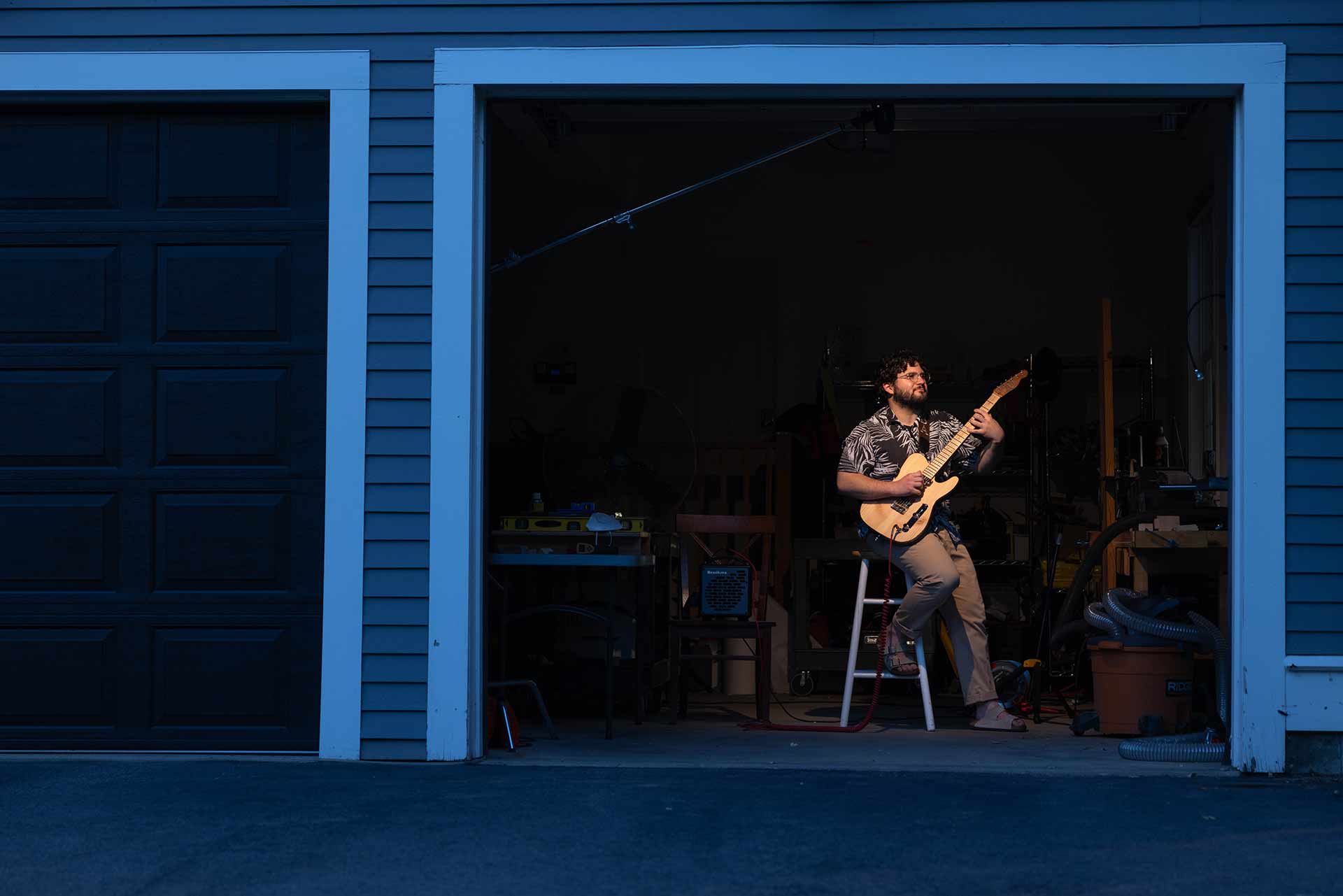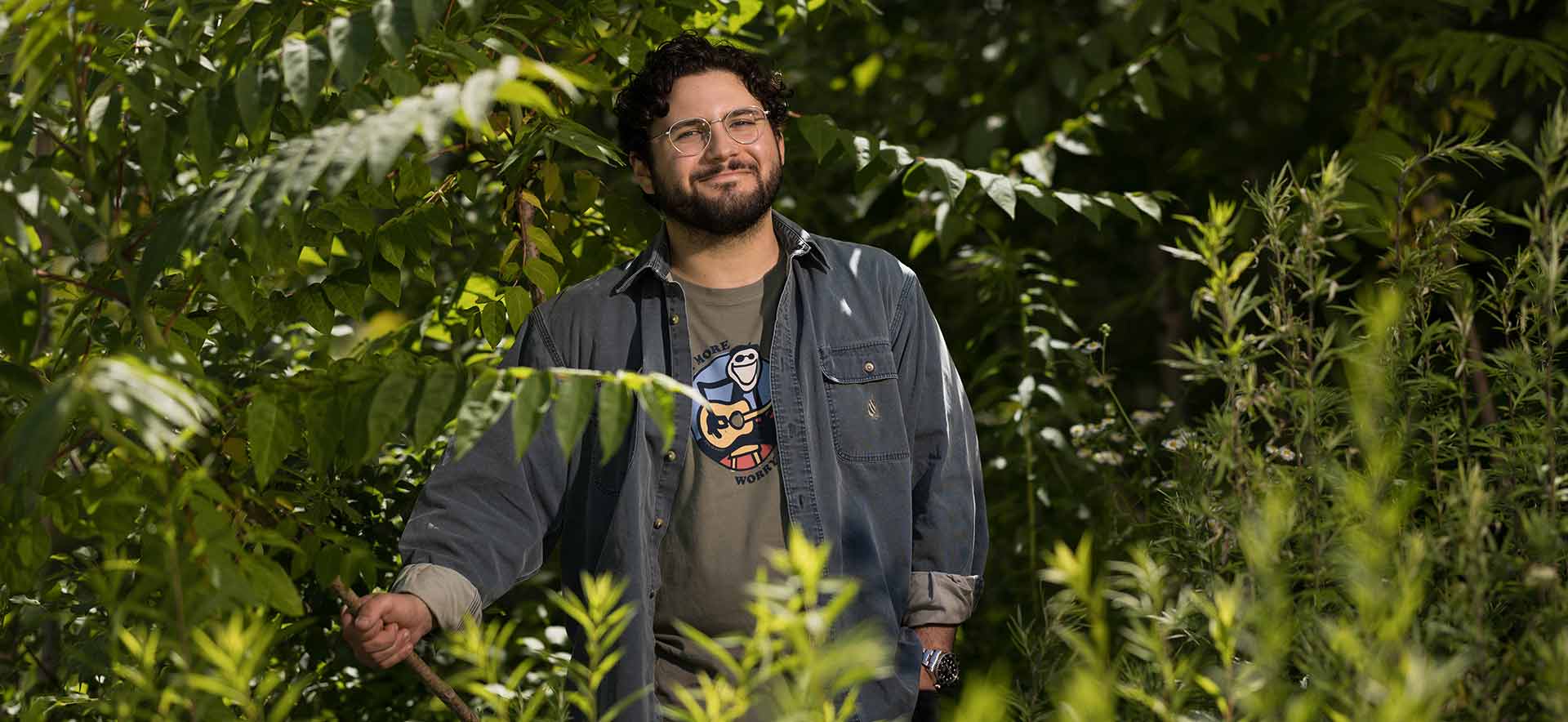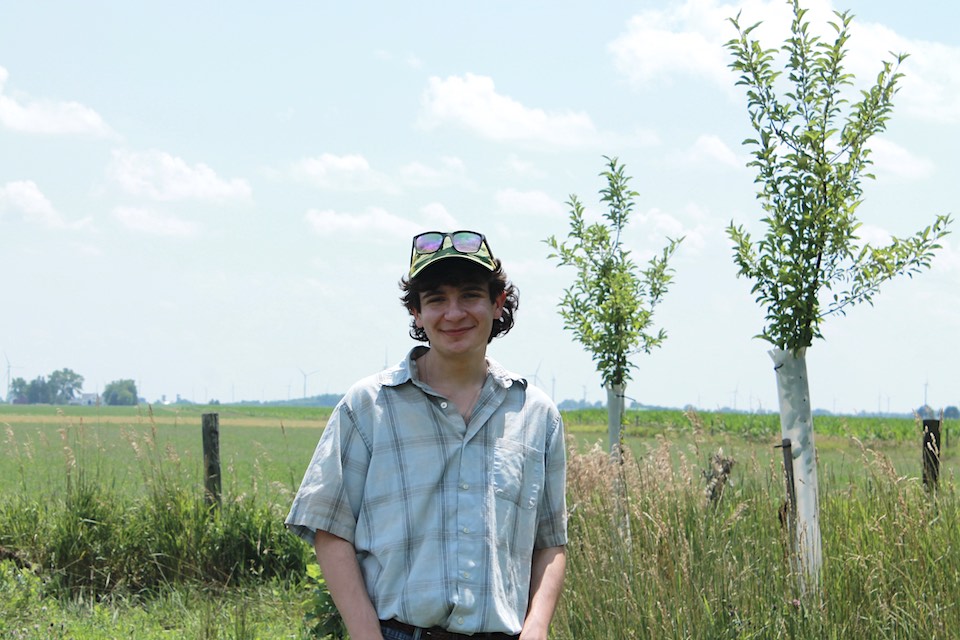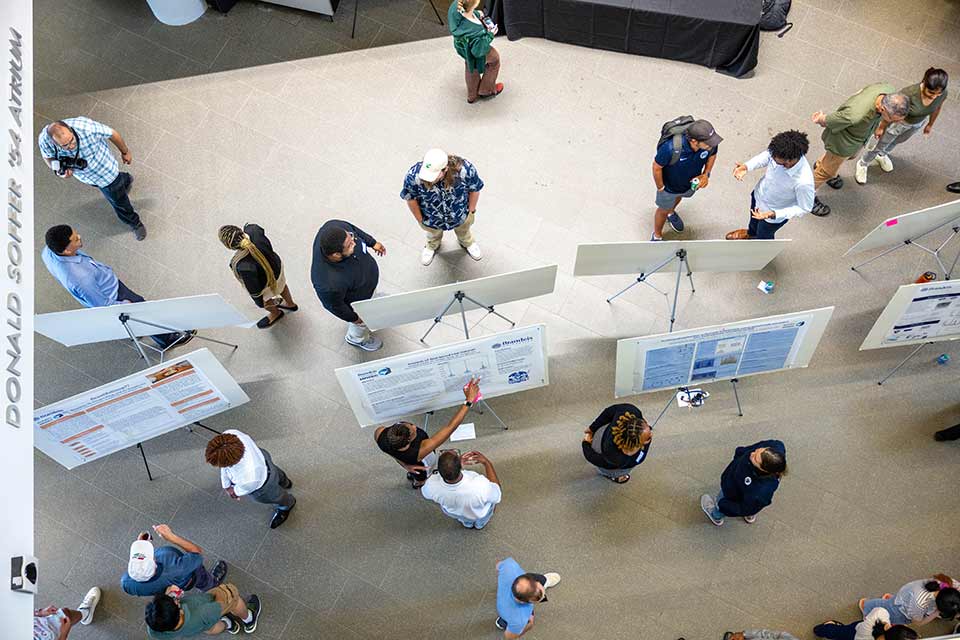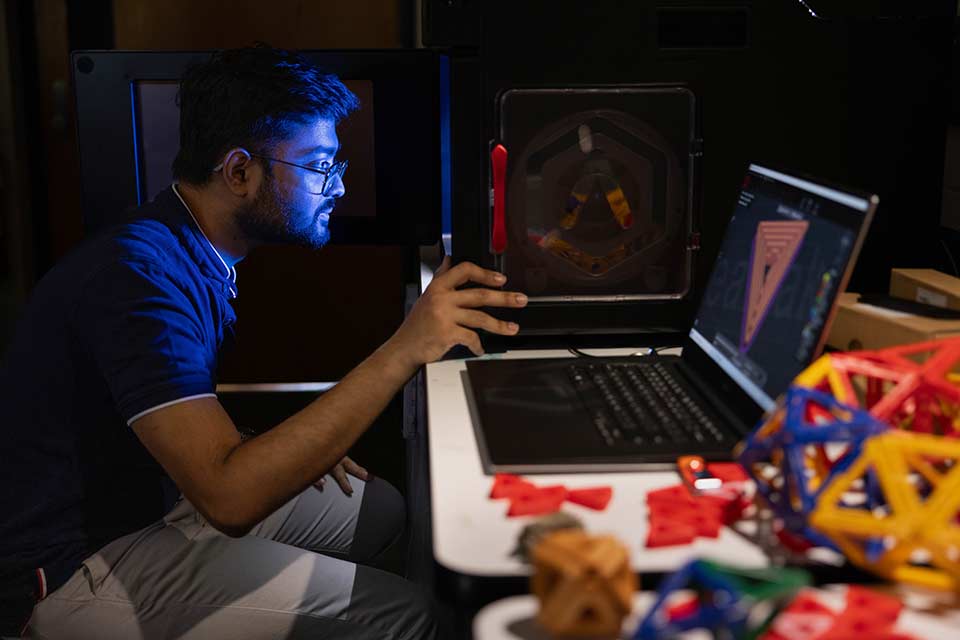Harmonious innovation
Tree for the Taking founders Sam Aronson ’20, Heller MBA’23, and Alden Kennedy, Heller MBA’23, are crafting guitars for a more sustainable future.
By Jarret Bencks
Photography by Dan Holmes
September 20, 2023
As part of an assignment in an environmental studies class his senior year, Sam Aronson ’20, Heller MBA ’23, researched how the Tongass National Forest was opened to logging.
As a fourth-generation guitar player, what he learned struck a chord.
“I saw this picture of what had to be a thousand-year-old tree. It took up the entirety of the bed of a flat truck,” Aronson recalled. “At the very end of the article, it said that the tree would be turned into 3,000 guitar tops. I felt shame, and I felt immediate guilt. These are meant to be tools for art creation, and here is this massive environmental crime.”
The images stuck with him. Three years later, Aronson started Tree for the Taking, an upstart that aims to change the guitar industry. The vision: to mass-produce sustainable, affordable, and American-made electric guitars.
“I don’t want to accept that I am part of the generation that will eventually have to look back and say, sorry, we used up all of the exotic wood, all of the old growth wood, for guitars,” Aronson said. “I want to, from the inside, steer the guitar manufacturing industry away from deforestation.”
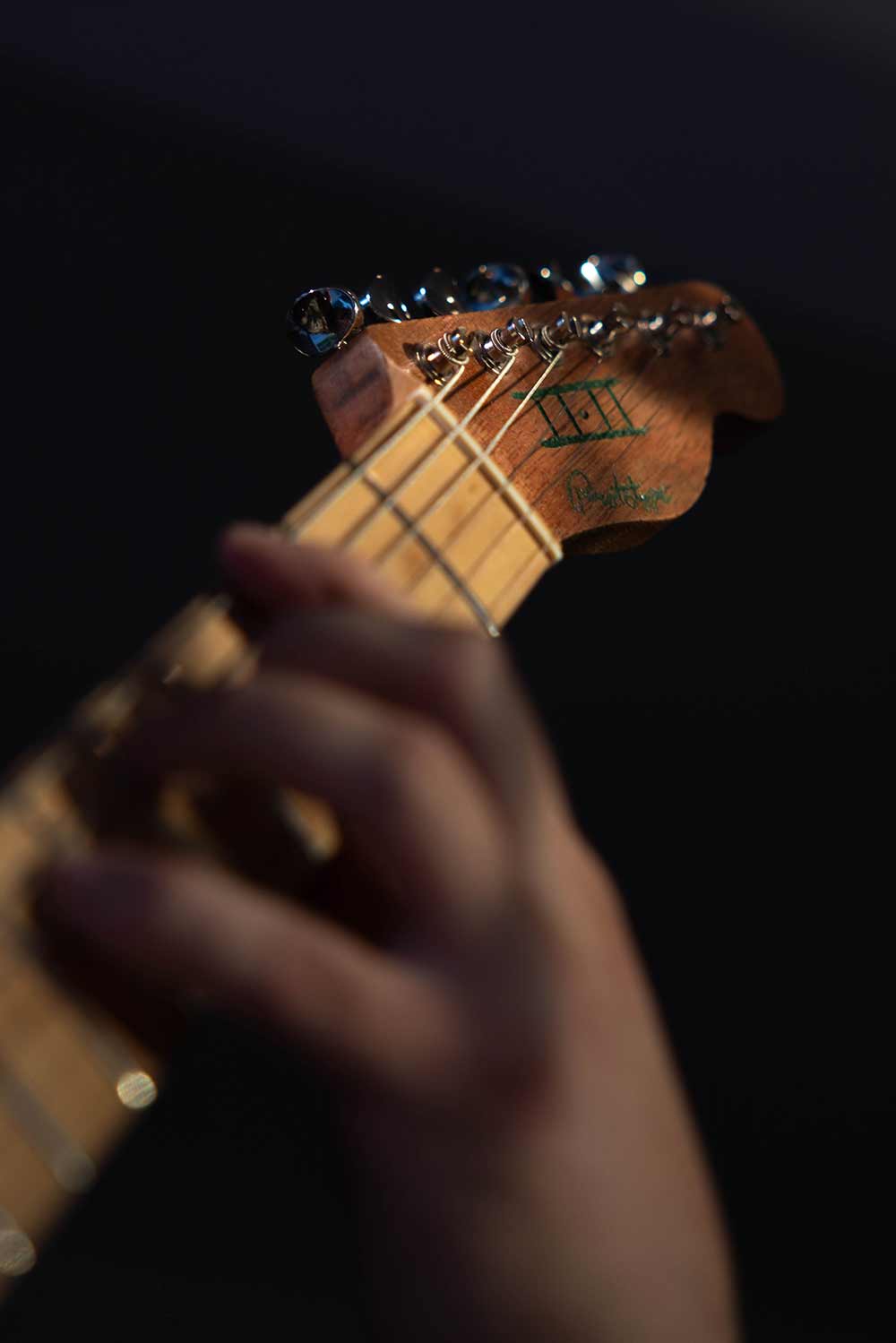
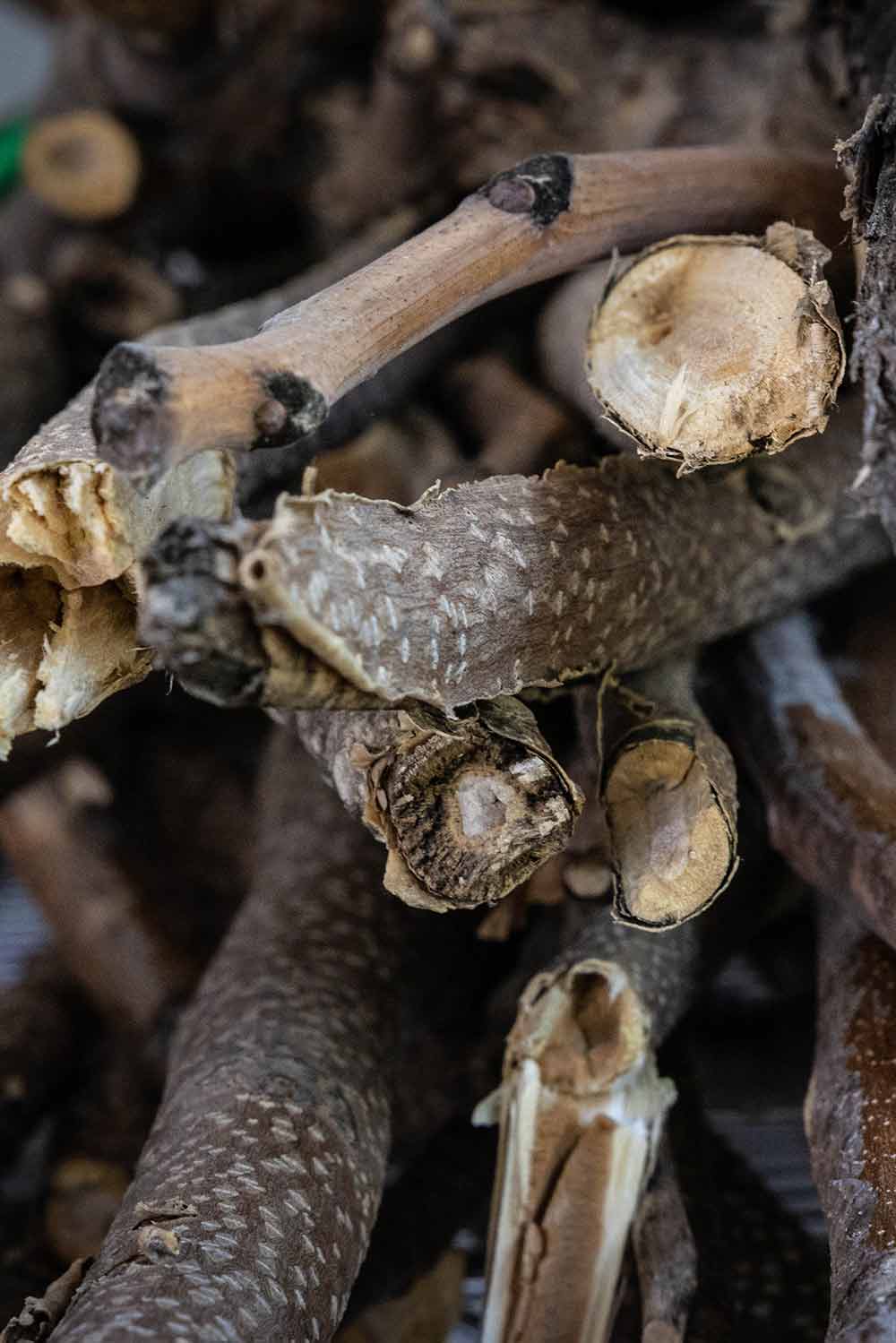
Using additive manufacturing techniques, Aronson developed a prototype guitar this summer in a workshop set up in his garage in Natick. The guitar’s body is made of a composite of epoxy and Tree of Heaven, an invasive species he harvested from the edge of the Theater Parking Lot on the Brandeis campus.
“I want to, from the inside, steer the guitar manufacturing industry away from deforestation.”
Sam Aronson
His love for the instruments carries a deep connection. Aronson’s father, Neal, was an avid musician, audiophile, and collector of guitars and stereo equipment. When he died in 2015, Aronson inherited four of his guitars. Love for guitars has passed through the generations in Aronson’s family — from his great-grandmother Hilda, who had performed in the guitar orchestra at the World’s Fair in New York in 1939, to his grandmother, Judith Aronson ’55, to his father.
“My father was like a musical savant. He had perfect pitch and an ear like a dog, and he tried to teach me to play,” Aronson recalled. “One of my biggest regrets in life is that I didn't take him up on it.”
Aronson only learned to play after inheriting his father’s collection.
“I felt a responsibility not to leave them unplayed, and it was a way to continue his legacy,” he said.
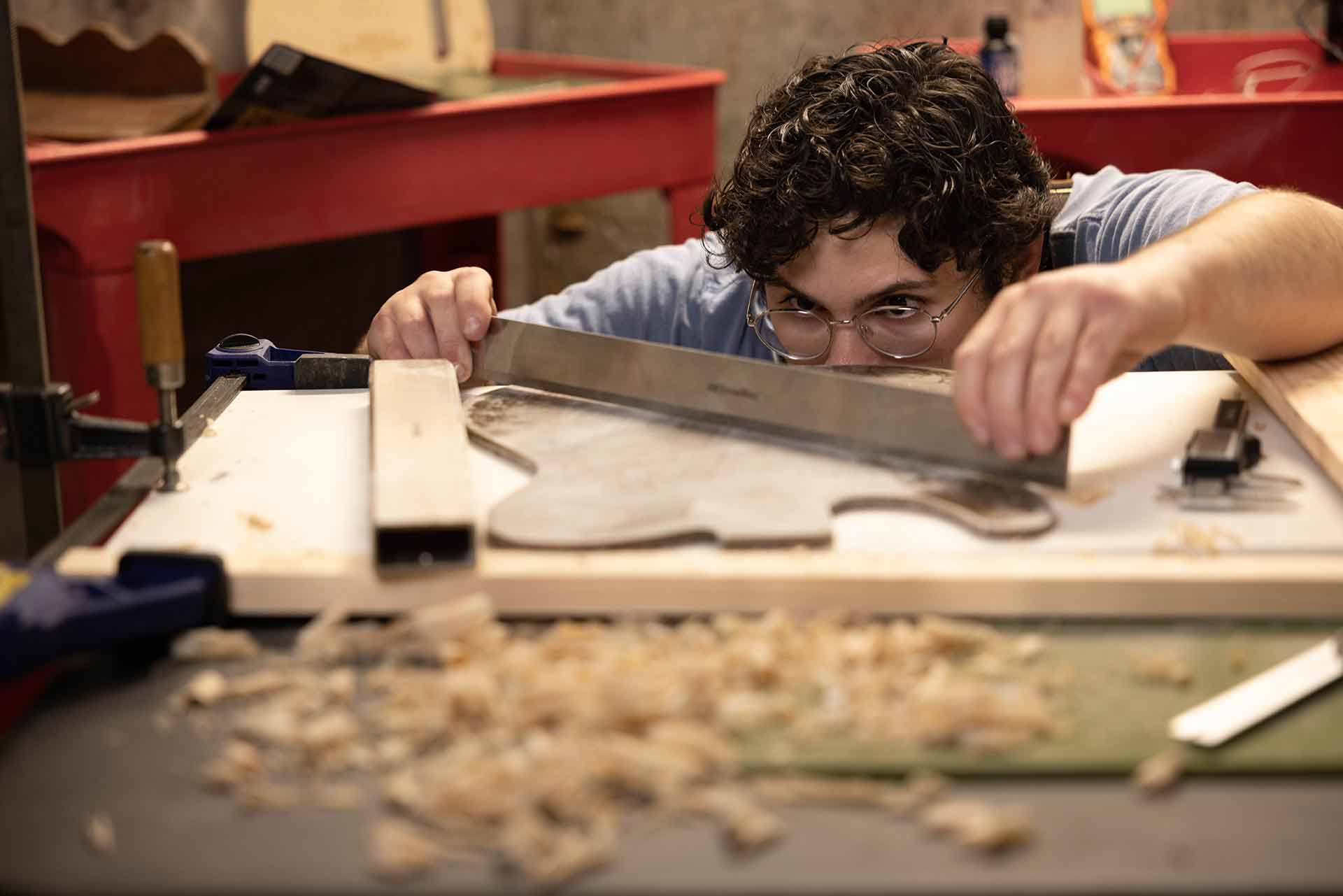
As Aronson headed off to Brandeis, what had started as a hobby soon became a passion. Some might even call it an obsession.
“I’m always thinking about how things connect to guitars,” he said. “Every school project, anytime I got the choice to choose my subject matter, it would be about guitars.”
He first became familiar with Tree of Heaven in an environmental science class during his senior year. As part of one assignment, the class — which was being held remotely at the time — was tasked with identifying all the trees in each student’s nearest woods.
In his backyard in Natick, and around his neighborhood, Aronson found lots of narrow trees with light gray bark and green leaves. He learned they were called Tree of Heaven.
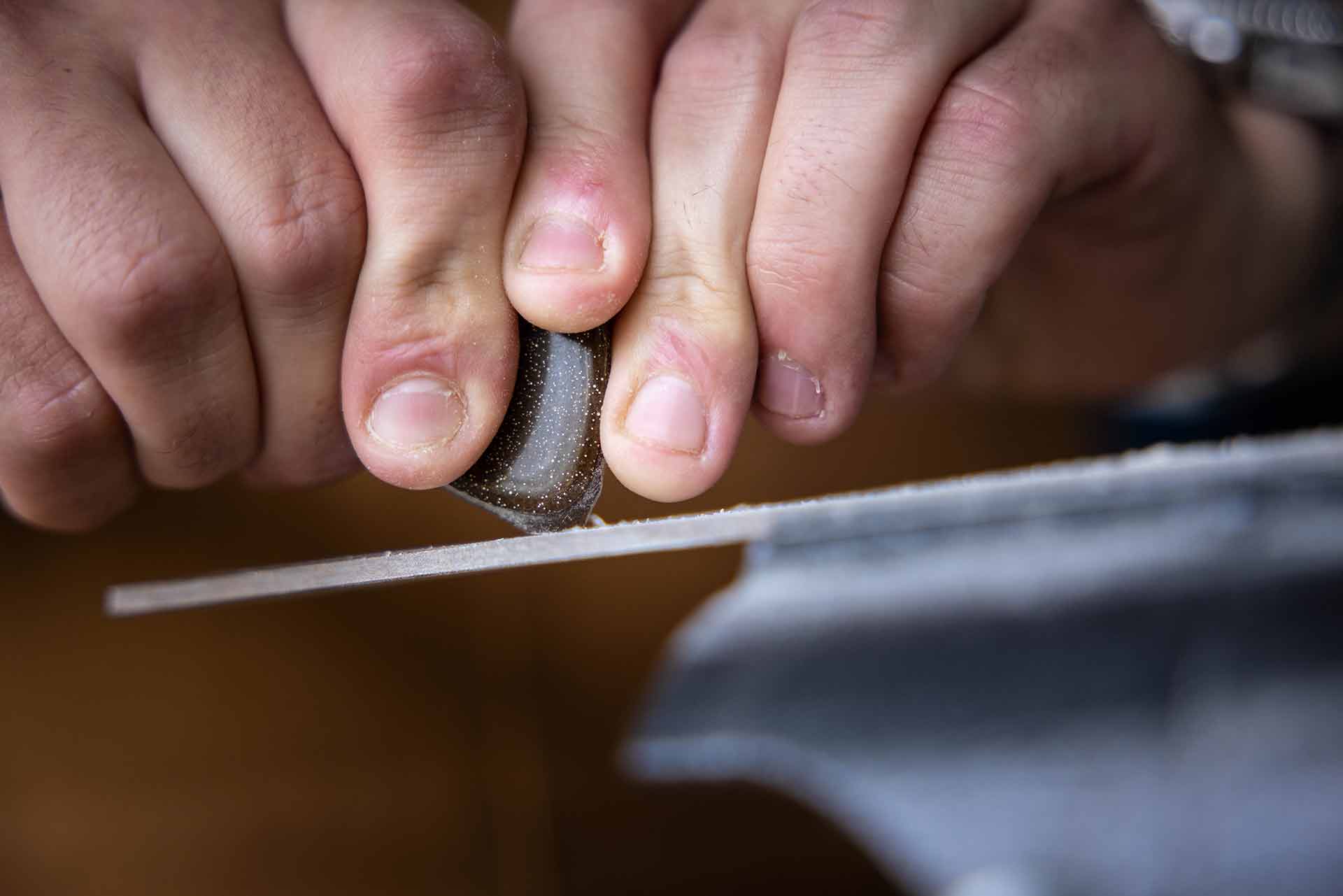
“Once I noticed it, I started seeing it absolutely everywhere,” Aronson said. “It’s invasive, and it really isn’t a good neighbor.”
When Aronson decided to apply to Heller’s Social Impact MBA program, he had a specific goal in mind: to improve the ethics of the guitar industry. In his Heller School application, he wrote about the importance of stopping deforestation and the impact of the production of new instruments on logging exotic trees.
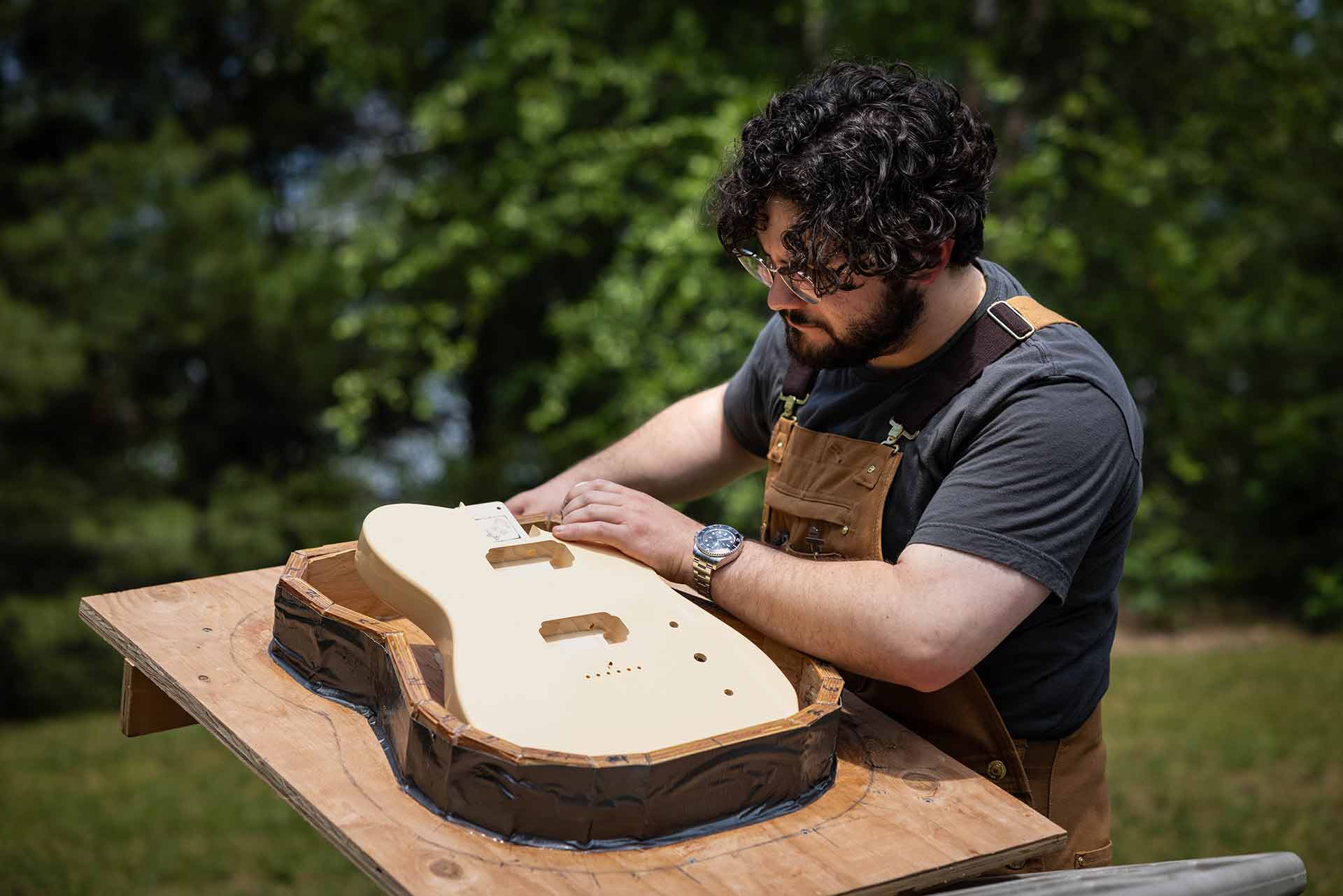
He first began to develop the concept for Tree for the Taking in 2021 as a pitch for the Heller School’s Startup Challenge, which awards funding for innovative business, social enterprise, and other creative projects. The winner of the start up challenge gets a place in Brandeis Innovation’s Spark Program, which provides support for innovation projects. The program’s annual SparkTank competition offers an opportunity to win funding, mentorship and other project support.
Aronson wasn't able to assemble a team around the project that year, but he did get some interest from Alden Kennedy, Heller MBA ’23 — the only other guitar player in his MBA cohort.
"I told him if it didn't work out this time, then I was in for next year," Kennedy recalled. “And when the 2022 challenge rolled around, we were very determined.”
“My father was like a musical savant. He had perfect pitch and an ear like a dog, and he tried to teach me to play. One of my biggest regrets in life is that I didn't take him up on it.”
Sam Aronson
Aronson and Kennedy developed a pitch, with Aronson focusing on the details of the business model and manufacturing, and Kennedy developing a marketing plan. After winning the Heller Startup Challenge and $1,500, Aronson began to create guitar picks.
Once in the Spark program, Aronson and Kennedy were introduced to Gess Kelly, a PhD candidate in physics, who helped to teach them more about additive manufacturing and material science. After a semester of honing their business plan and prototyping methods, and building a website, Tree for the Taking’s pitch took first prize at the SparkTank competition and was awarded $10,000 in funding.
Aronson is the perfect person to lead such a project, Kennedy said.
“He’s the biggest guitar fanatic in the state of Massachusetts,” Kennedy said. “He's also really into trees.”
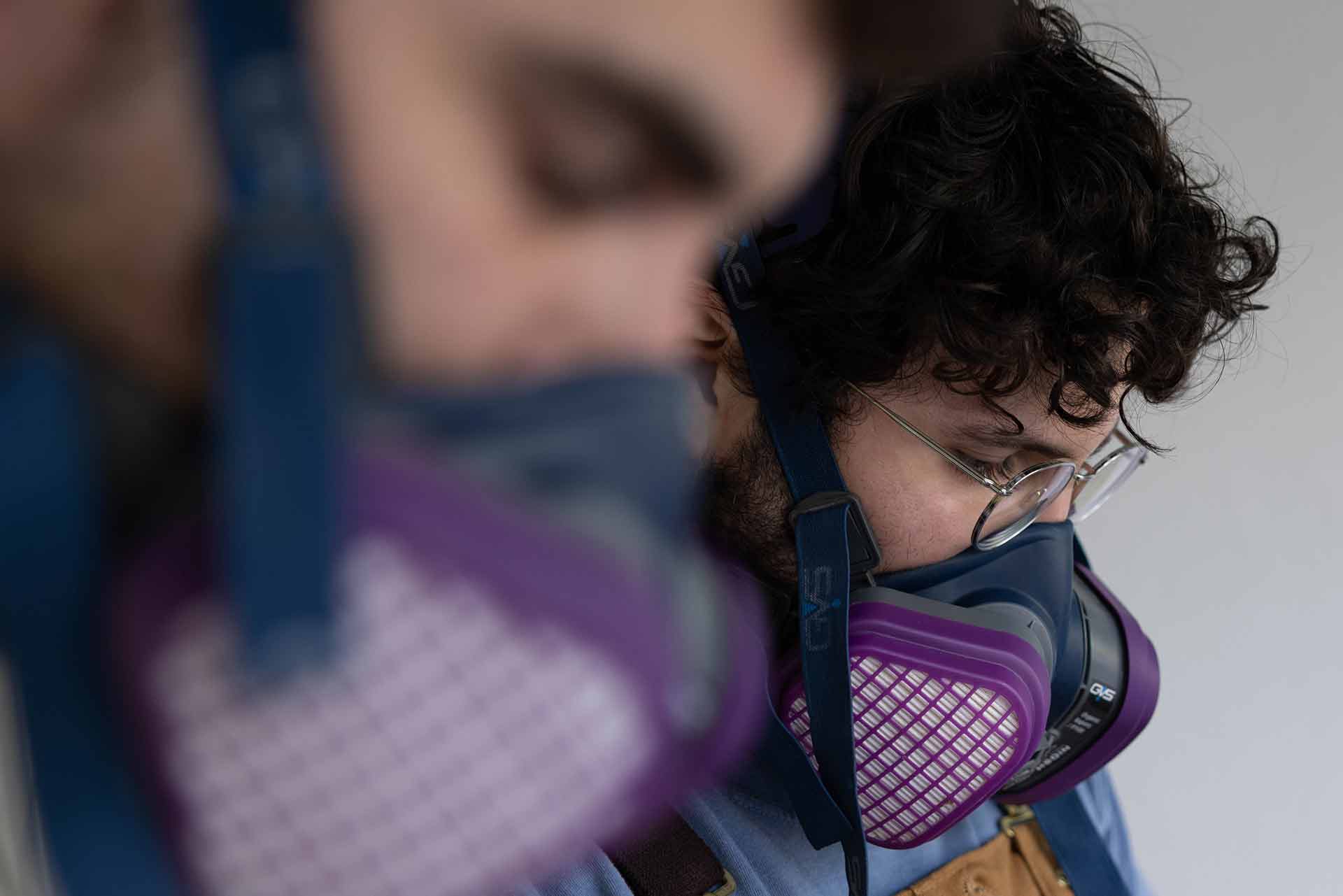
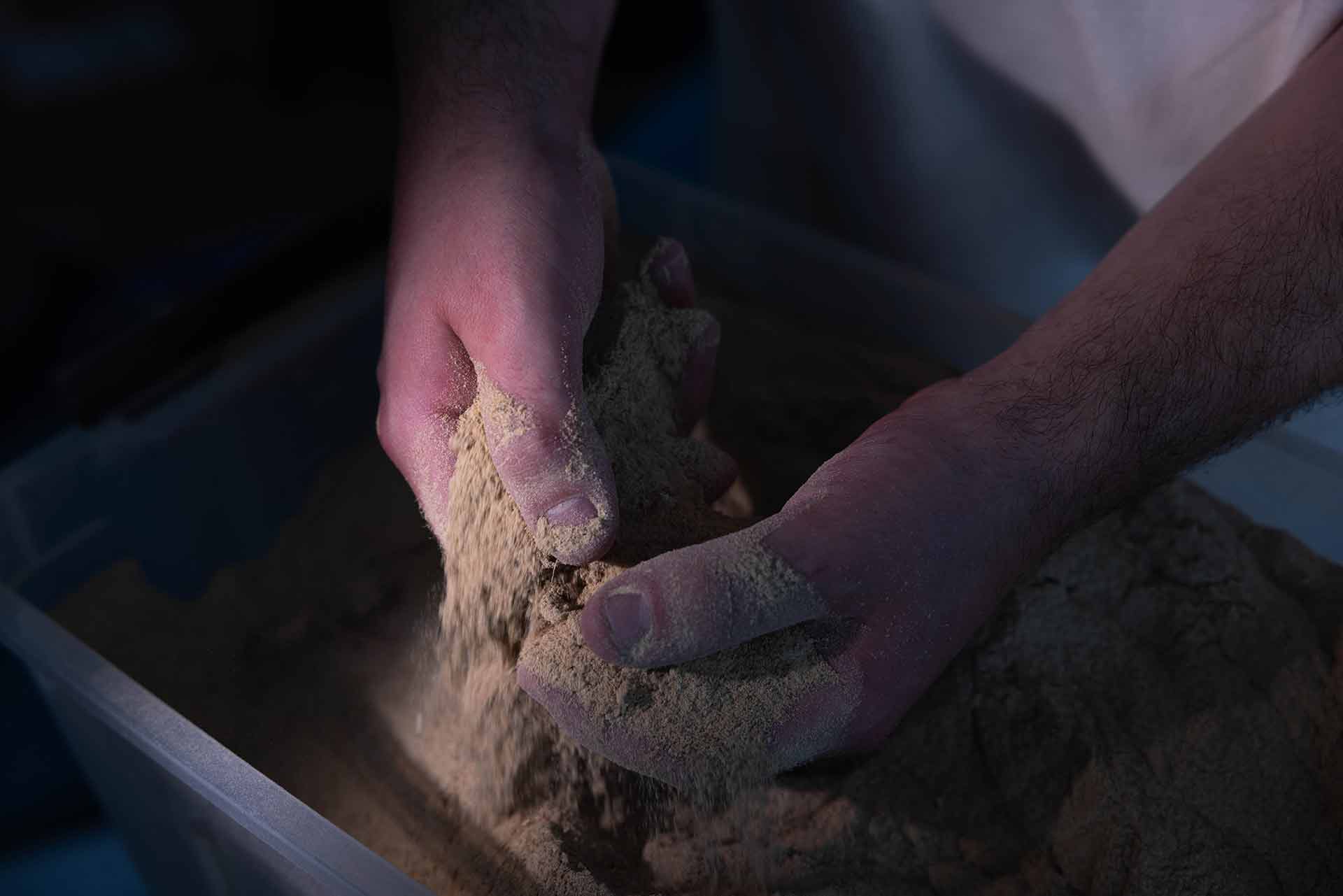
The first product Tree for the Taking developed with the $1,500 won from the Heller Startup Challenge were guitar picks made with powdered biomass from Tree of Heaven and epoxy, but making picks was not the ultimate goal.
“I knew I couldn't change the world making picks,” Aronson said. “Guitars are a different story.”
After researching and investing in manufacturing equipment, Aronson spent the summer working with intern Ethan Gelman ’24 on developing prototype guitars. He had never built a guitar from scratch before and learned as he went along.
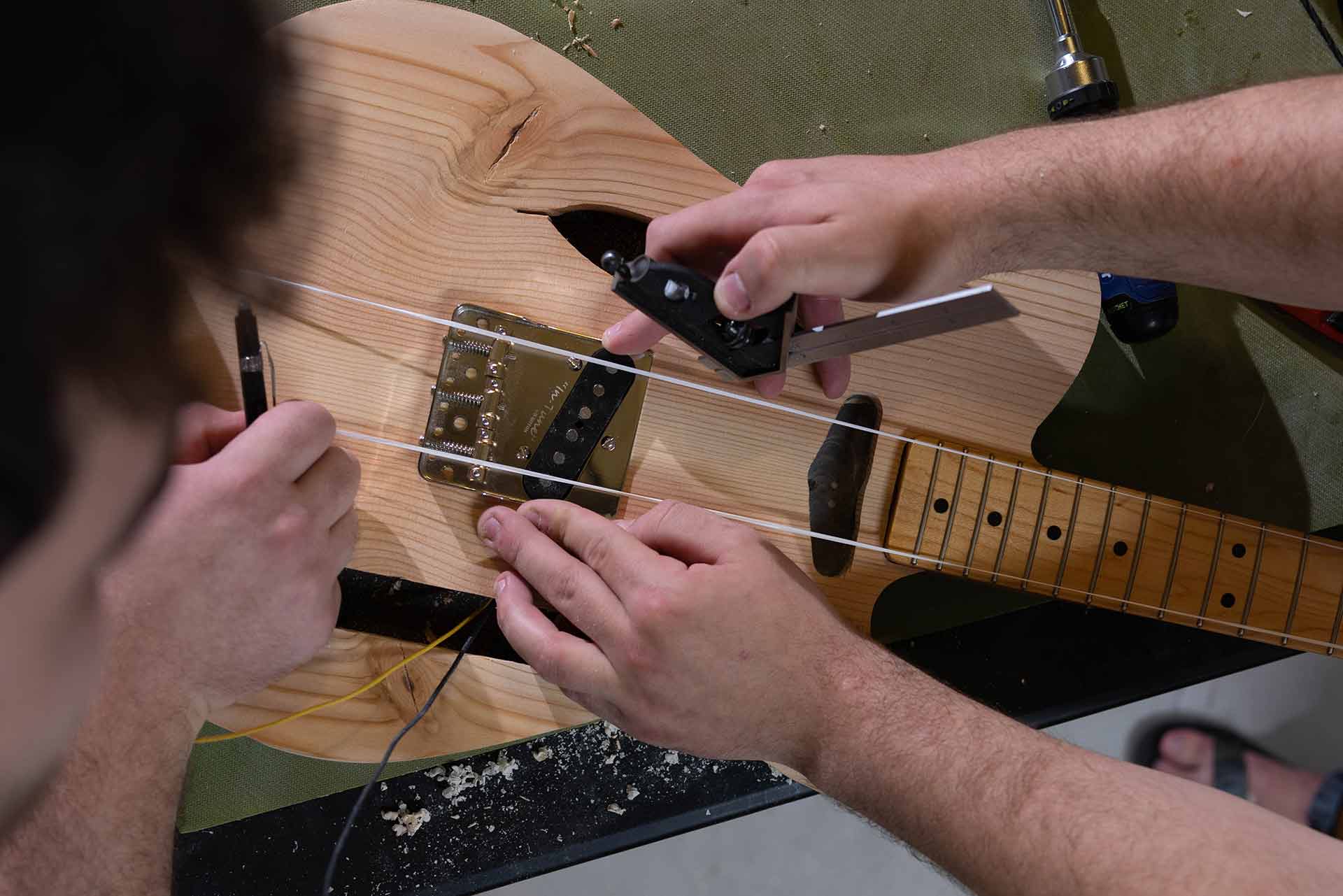
The result: a semi-hollow, telecaster-style guitar with a matte brown composite-molded body made of a blend of ecopoxy and Tree of Heaven with a reclaimed cedar top from a warehouse board. The neck is made of leftover mahogany from a deck repair project.
Becoming a viable company will require a long, complex progression — including finding traceable, reclaimed material for the necks, ways of grinding up larger quantities of Tree of Heaven, figuring out how to make the guitar lighter, and how to produce them on a larger scale, while keeping the product affordable.
Eventually they will need to create custom made molds, and find assistance with labor.
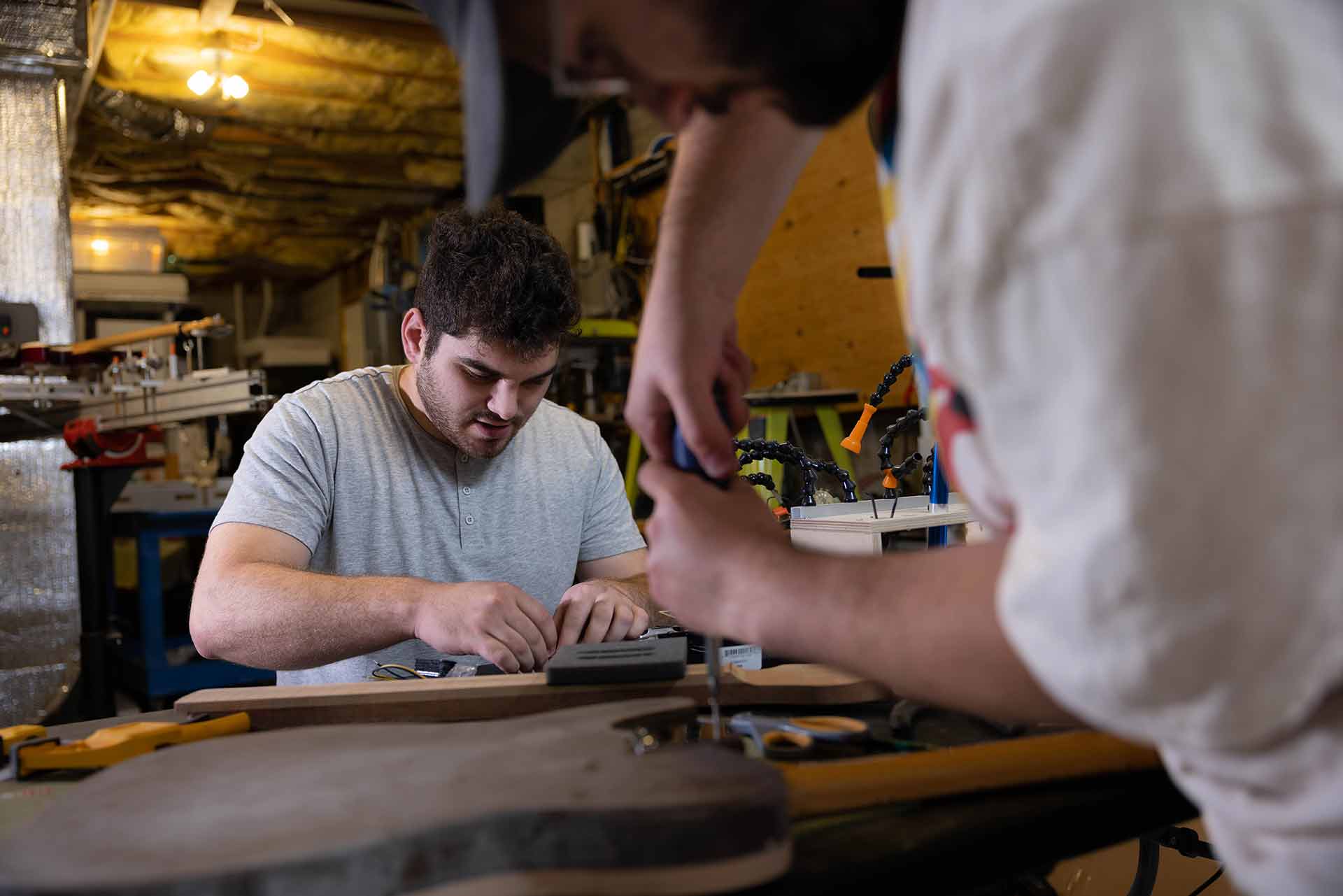
Kennedy has taken a full-time job in Chicago, but he still helps with updating the Tree for the Taking website, developing a marketing plan and helping with project management.
Meanwhile, Aronson is building more prototypes to improve the design. The plan is to eventually launch a Kickstarter to fund the production of an initial small batch for retail.
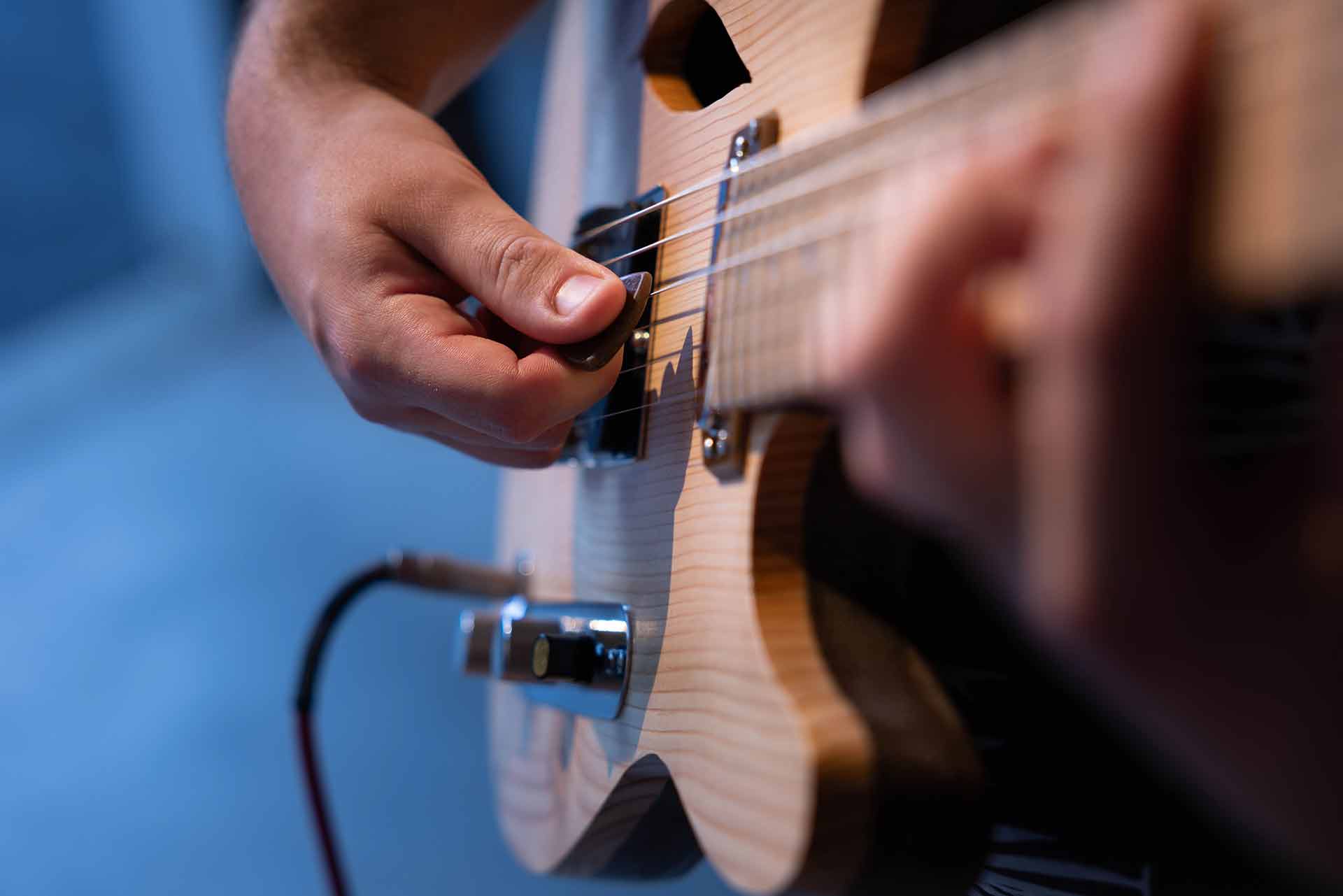
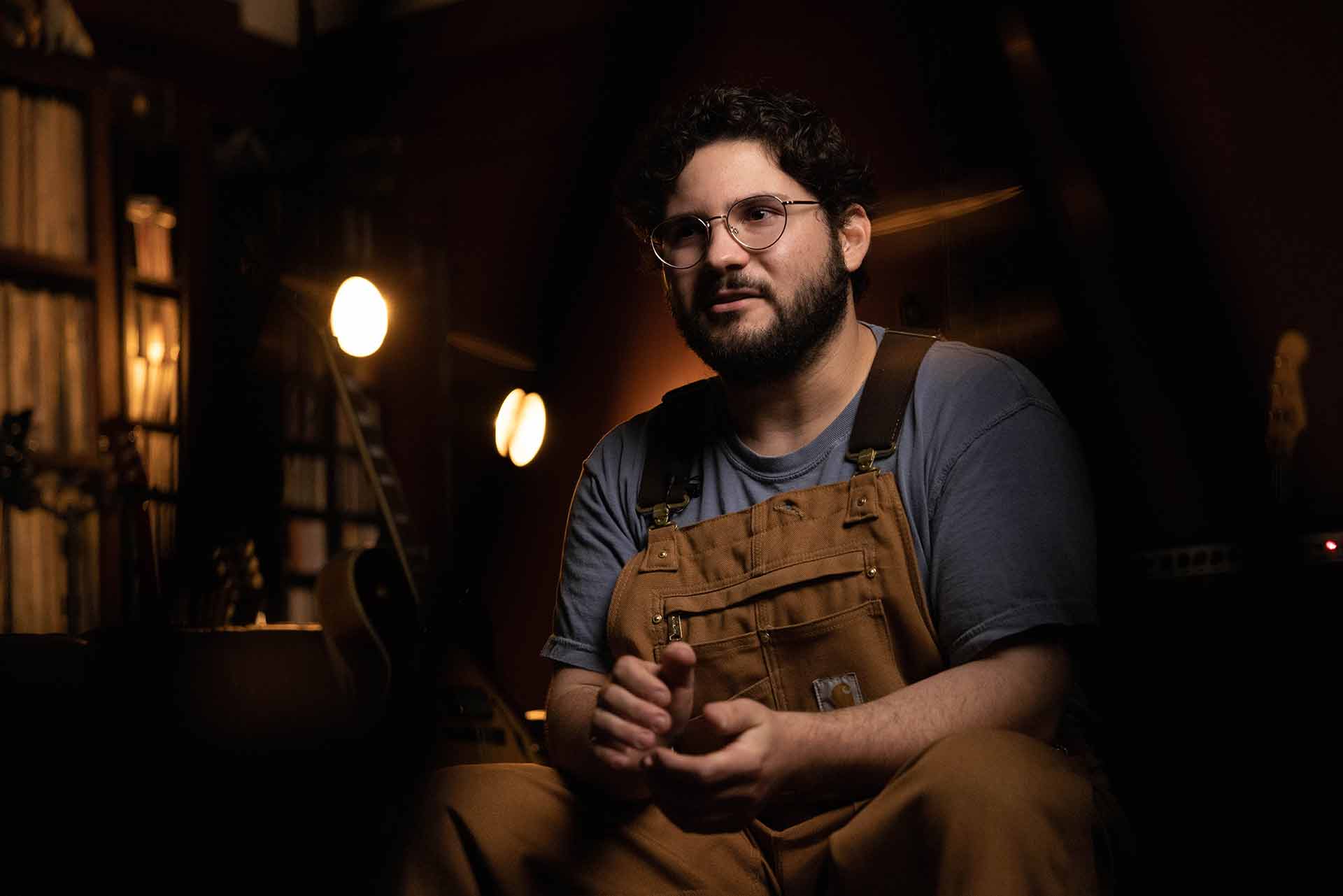
There’s still a ways to go, but for Aronson, his prototype strikes exactly the right note.
"This is my new favorite guitar. I really haven't even tried to play my others since I finished this,” he said. “The fact that I made this one, and I made it the way I wanted to, it's really everything for me.”
